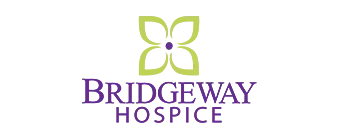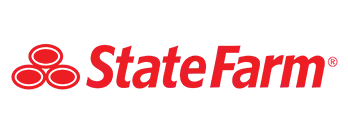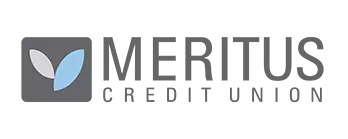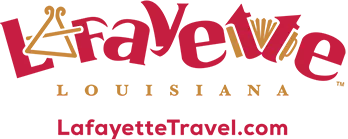University of Louisiana at Lafayette Athletics
Coaches & Staff

| ACADEMIC PROGRESS RATE | AWARDS AND BENEFITS | COUNTABLE ATHLETICALLY RELATED ACTIVITIES | HEAD COACH RESPONSIBILITY | RECRUITING |
Louisiana coaches and staff members are expected to comply with all NCAA, Sun Belt Conference, and institutional rules and regulations. Coaches and staff members should contact the Compliance Office if they have any questions or concerns regarding any of the information contained within this section.
| ACADEMIC PROGRESS RATE |
The Academic Progress Rate (APR) is a term-by-term measure of eligibility and retention for Division I student-athletes that was developed by the NCAA as an indicator of eventual graduation rates.
Every Division I sports team calculates its APR each academic year, based on the eligibility and retention of each scholarship student-athlete (including medical hardships and 5th year students). Teams scoring below certain thresholds can face penalties, such as scholarship losses and restrictions on practice and competition. Rates are based on the performance of a rolling four-year period.
How is a team's APR calculated?
The APR awards two points each term to student-athletes who meet academic eligibility standards and who remain with the institution. A team's APR is the total points earned by the team at a given time divided by the total points possible.
Each student-athlete can earn a maximum of two points for his/her team every semester that he/she receives athletics aid:
- One point for eligibility if he/she meets all NCAA eligibility requirements (e.g., progress-toward-degree, credit hours, and GPA).
- One point for retention if he/she returns to UL the following semester. Once a student graduates, he/she will always have a point for retention.
Currently, teams must earn at least a four-year APR of 930 to compete in NCAA championships. While the APR is intended as an incentive-based approach, it does come with a progression of penalties for teams that under-perform academically over time. The first penalty level limits teams to 16 hours of practice per week over five days (as opposed to 20 hours over six days), with the lost 4 hours to be replaced with academic activities. The second level adds additional practice and competition reductions, either in the traditional or non-championship season. Additional penalties may be added by the NCAA if needed.
| AWARDS AND BENEFITS |
Complimentary Admissions
For an Unofficial Visit, a prospect may be provided up to three (3) complimentary tickets (issued only through a pass list) to a home athletics event at any facility within a 30-mile radius of campus. To request complimentary tickets for an unofficial visit, please complete this form and return to the Compliance Office.
For an Official Visit, a prospect may be provided up to six (6) complimentary tickets (issued only through a pass list) to a home athletics event at any facility within a 30-mile radius of campus. To request complimentary tickets for an official visit, please complete this form and return to the Compliance Office.
Participation Awards
Awards must be approved by the Compliance Office PRIOR to purchase.
Some items that an enrolled student-athlete may not be awarded include:
- Cash
- Gift cards that are redeemable for cash (original amount or balance thereof)
- Cash-equivalent award (an item that is negotiable for cash or trade or other services, benefits or merchandise) for athletics participation
- Country club or sports club membership
Occasional Meals
NCAA regulations permit a UL coach or staff member to provide a student-athlete or an entire team with an occasional meal (and transportation to attend the meal) in the locale of the institution (e.g., home, campus, restaurant).
A UL booster (or representative of athletics interests) may also provide a meal on infrequent and special occasions, but these meals must take place at the individual's home, on campus or at a facility that is regularly used for home competition. Boosters may provide transportation to the meal only if it takes place at their home.
All occasional meals must be PRE-APPROVED by the Compliance Office. To seek approval to provide an occasional meal, please complete the Occasional Meal Request in ARMS.
Meals and Snacks
Per NCAA rules and regulations, an institution is permitted to provide the following meal benefits to student-athletes:
- Training Table Meals- an institution may provide only one training table meal per day to a student-athlete during the academic year on days when regular institutional dining facilities are open. A student-athlete who does not receive institutionally athletically related financial aid covering the full cost of board, including a walk-on or partial scholarship recipient, may purchase one training table meal per day at the same rate the institution deducts from board allowance for a student-athlete.
- Meals in Conjunction with Home Competition- all student-athletes are permitted to receive meals at the institution's discretion beginning the evening before competition and continuing until they are released by institutional personnel. An institution shall not provide cash to student-athletes in lieu of meals during this time period. An institution, at its discretion, may provide a meal or cash (not to exceed $15), but not both, to student-athletes at the time of their release by institutional personnel.
- Meals in Conjunction with Away-from-Home Competition- an institution may provide meals to student-athletes pursuant to one of the following options:
- All student-athletes are permitted to receive a pregame and postgame meal as a benefit incidental to participation in addition to regular meals (or meal allowances per institutional policy). An institution, at its discretion, may provide cash, not to exceed $15 in lieu of a postgame meal.
- All student-athletes are permitted to receive meals at the institution's discretion. An institution shall not provide cash to student-athletes in lieu of meals under this option before their release. An institution may provide a meal or cash (not to exceed $15), but not both, to a student-athlete at the time of his or her release by the institutional authority, regardless of whether he or she uses team travel to return to campus.
- Snacks- an institution may provide snacks to a student-athlete at any time.
- Vacation-Period Expenses- an institution may provide the cost of board to student-athletes (during official institutional vacation periods) in the following circumstances. If an institution does not provide a meal to its student-athletes under such circumstances, a cash allowance may be provided, not to exceed the amount provided by the institution to institutional staff members on away-from-campus trips:
- Student-athletes who are required to remain on the institution's campus for organized practice sessions or competition during the institution's official vacation period. If a student-athlete lives at home during the vacation period, the cost of board shall not be provided by the institution, other than to permit the student-athlete to participate in team meals incidental to participation.
- Student-athletes who return to campus during the institution's official vacation period occurring during a regular academic term (not including vacation periods between terms) from institutional competition. Under such circumstances, board expenses may be provided beginning with the student-athlete's arrival on campus until the institution's regular dormitories and dining facilities reopen. If the student-athlete lives at home during the vacation period, the cost of room and board may not be provided by the institution.
- Student-athletes who return to campus during the institution's official vacation period between regular academic terms (e.g., summer-vacation period) from institutional competition that occurs at the end of the institution's playing and practice season or a segment thereof. Under such circumstances, board expenses may be provided for not more than a 48-hour period, beginning with the student-athlete's return to campus. If the student-athlete lives at home during the vacation period, the cost of room and board may not be provided by the institution.
- Nutritional Supplements- an institution may provide permissible nutritional supplements to a student-athlete for the purpose of providing calories and electrolytes. Permissible nutritional supplements do not contain any NCAA banned substances and are identified according to the following classes: carbohydrate/electrolyte drinks, energy bars, carbohydrate boosters, protein supplements, omega-3 fatty acids, and vitamins and minerals.
| COUNTABLE ATHLETICALLY RELATED ACTIVITIES |
As is outlined in Bylaw 17 of the NCAA Division I Manual, a student-athlete's participation in countable athletically related activities (CARA) shall be limited to the following:
Playing Season
Daily Limit: 4 hours
Weekly Limit: 20 hours
At least one (1) day off per week
NOTE: A competition day is considered three (3) hours of activity regardless of the actual duration of the event (this includes pre-game warm-ups, shoot-around, etc.). No countable activities may take place after a competition.
Outside the Playing Season
Weekly Limit: 8 hours
At least two (2) days off per week
Coaches are required to log their team's weekly CARA hours in ARMS.
Voluntary activities do not count toward the limitations displayed above. However, any activity at which a coach is present must count against daily and weekly hour limits (other than meetings initiated by student-athletes during which no other countable activities occur).
Further, the daily and weekly hour limitations on CARA DO NOT apply to the following time periods:
- During preseason practice prior to the first day of classes or the first scheduled contest, whichever is earlier
- During vacation periods (e.g., Fall break, Thanksgiving, MLK Day, Mardi Gras, Spring Break, etc.) as listed in the official academic calendar
- During the academic year between terms when classes are not in session (i.e.., Winter Break)
| HEAD COACH RESPONSIBILITY |
11.1.1.1 Responsibility of Head Coach. An institution's head coach is presumed to be responsible for the actions of all institutional staff members who report, directly or indirectly, to the head coach. An institution's head coach shall promote an atmosphere of compliance within his or her program and shall monitor the activities of all institutional staff members involved with the program who report, directly or indirectly, to the coach.
Head coaches, please log activity in your Head Coach Responsibility binder and submit to the Compliance Office by July 1.
| RECRUITING |
Per NCAA legislation, recruiting is defined as any solicitation of a prospect or a prospect's relatives (or legal guardians) by an institutional staff member or by a representative of athletics interest (e.g., booster) for the purpose of securing the prospect's enrollment and ultimate participation in the university's intercollegiate athletics program.
The two types of off-campus recruiting activities include:
1. Contact: any face-to-face encounter between a prospect or the prospect's family members and an institutional staff member or booster during which any dialogue occurs in excess of an exchange of a greeting.
2. Evaluation: any off-campus activity designed to assess the academic qualifications or athletics ability of a prospect, including any visit to a prospect's educational institution (during which no contact occurs) or the observation of prospect participating in any practice or competition at any site.
Recruiting Calendar
Recruiting calendars help promote the well-being of prospective student-athletes and coaches and ensure competitive equity by defining certain time periods in which recruiting may or may not occur in a particular sport.
You can click here to locate your sport’s recruiting calendar.
Periods of Recruiting Activity
There are four distinct recruiting periods: contact, evaluation, quiet and dead period. These are defined below:
- Contact Period: A contact period is a period of time when it is permissible for authorized athletics department staff members to make in-person, off-campus recruiting contacts and evaluations.
- Evaluation Period: An evaluation period is a period of time when it is permissible for authorized athletics department staff members to be involved in off-campus activities designed to assess the academic qualifications and playing ability of prospects. No in-person, off-campus recruiting contacts shall be made with the prospect during an evaluation period.
- Quiet Period: A quiet period is a period of time when it is permissible to make in-person recruiting contacts only on the institution's campus. No in-person, off-campus recruiting contacts or evaluations may be made during the quiet period.
- Dead Period: A dead period is a period of time when it is not permissible to make in-person recruiting contacts or evaluations on or off the institution's campus or to permit official or unofficial visits by prospects to the institution's campus. It remains permissible, however, for an institutional staff member to write or telephone a prospect during a dead period.
Coaching staff members are permitted to communicate with prospects through the following methods:
- Telephone/Video Calls: The first permissible date to make telephone contact with a prospect depends on the sport who is recruiting that prospect. In baseball and softball, the first permissible date to make telephone contact with a prospect is September 1st at the beginning of their junior year in high school. In the sport of football, a coach may place one telephone call to a prospect between April 15th and May 31st of their junior year in high school and any additional telephone calls may not be placed until September 1st at the beginning of their senior year in high school. In men's basketball and all other sports, the first permissible date to make telephone contact with a prospect is June 15th at the conclusion of their sophomore year in high school. In women's basketball, the first permissible date to make telephone calls with a prospect is June 1st after their sophomore year in high schoo.
- Recruiting Materials and Electronic Correspondence (e.g., emails, text messages, direct messages on social media): In baseball, softball, and football, the first permissible date to send electronic correspondence to a prospective student-athlete is September 1st at the beginning of their junior year in high school. In men’s basketball and all other sports, the first permissible date is June 15th at the conclusion of the prospect’s sophomore year. In women's basketball, the first permissible date is June 1st after the prospect's sophomore year.
- General Correspondence- there are no restrictions on the design or content of general correspondence and attachments, except that the size of the printed material may not exceed 8.5 by 11 inches when opened in full. There are no restrictions on the design or content of an envelope used to send general correspondence and attachments, except the size of the envelope may not exceed 9 by 12 inches.
- Camp or Clinic Information- may be provided at any time.
- Questionnaire- may be provided at any time.
- Nonathletics Institutional Publications (e.g., official academic, admissions and student services publications published by the institutional and available to all students)- may be provided at any time.
- Educational Material Published by the NCAA (e.g., NCAA Guide for the College-Bound Student-Athlete)- may be provided at any time.
- Pre-enrollment Information- may provide any necessary pre-enrollment information regarding orientation, conditioning, academics and practice activities to a prospective student-athlete, provided he or she has signed a National Letter of Intent or institutional financial aid agreement, or has been officially accepted for enrollment.
Basketball and Football: In basketball and football, an institution may subscribe to a recruiting or scouting service involving prospects, provided the institution does not purchase more than one annual subscription to a particular service and the service:
- Is made available to all institutions desiring to subscribe and at the same fee rate for all subscribers;
- Publicly identifies all applicable rates;
- Disseminates information (e.g., reports, profiles) about prospects at least four times per calendar year;
- Publicly identifies the geographical scope of the service (e.g., local, regional, national) and reflects broad-based coverage of the geographical area in the information it disseminates;
- Provides individual analysis beyond demographic information or rankings for each prospect in the information it disseminates;
- Provides access to samples or previews of the information it disseminates before purchase of a subscription;
- Provides information regarding each prospect in a standardized format that ensures consistent distribution to all subscribers; and
- Does not provide information in any form (e.g., oral reports, electronic messages) about prospects beyond the standardized, consistent information that is provided to all subscribers.
Sports other than Basketball and Football: In sports other than basketball and football, an institution may subscribe to a recruiting or scouting service involving prospects, provided the service is made available to all institutions desiring to subscribe and at the same fee rate for all subscribers. An institution is not permitted to subscribe to a recruiting or scouting service that provides information in any form (e.g., oral reports, electronic messages) about prospective student-athletes beyond the standardized, consistent information that is provided to all subscribers. An institution is permitted to subscribe to a service that provides scholastic and/or nonscholastic video. The institution may not contract with a service in advance to have a particular contest recorded or provided.
Video-Only Services: An institution is permitted to use or subscribe to a video service that only provides video of prospects and does not provide information about or analysis of prospects.
Recruiting Visits
Any visit to a college campus by a college-bound student-athlete or his or her parents paid for by the college is an official visit. Visits paid for by college-bound student-athletes or their parents are unofficial visits.
During an official visit, the college can pay for transportation to and from the college for the prospect, lodging and three meals per day for the prospect and up to four family members, as well as reasonable entertainment expenses including six tickets to a home sports event.
The only expenses a college-bound student-athlete may receive from a college during an unofficial visit are three tickets to a home sports event.
To submit an official visit request, please complete the Official Visit Form in ARMS.
To log an unofficial visit, please click “Unofficial Visit” by hovering your mouse over “Visits” on a recruit’s ARMS profile.








